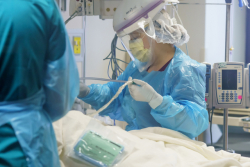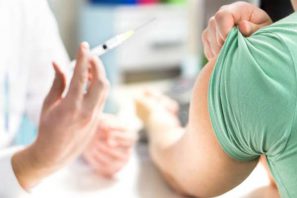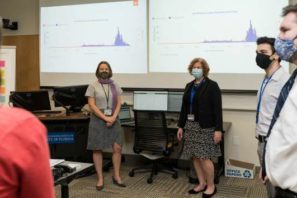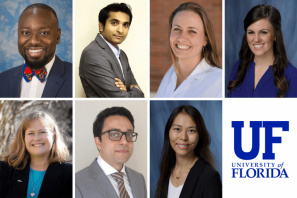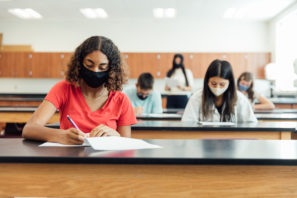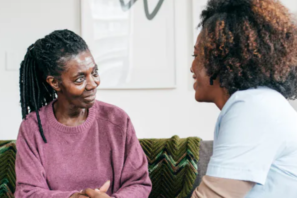Researchers at the UF Herbert Wertheim College of Engineering receive a grant from the National Science Foundation to study COVID-19 modeling, staffing and PPE.
people, however, soon discover the microscopic invader won’t allow them to return to their normal lives even months after infection. It’s an especially insidious side of the coronavirus that makes vaccination all the more important — COVID-19 as chronic illness.
Patients with severe COVID-19 twice as likely to require future hospitalizations for other illnesses
People who have recovered from a bout of severe COVID-19 may still have reason for concern about their health.
A UF team of infectious disease experts propose a core protocol for such vaccination trials.
Cindy Prins, Ph.D., offers infection control assessments for UF entities who aim to resume activities throughout campus.
Seven University of Florida neuroscientists have earned Brain and Spinal Cord Injury Research Trust Bridge Funds.
University of Florida College of Pharmacy researchers studying the safety of two classes of drugs touted as potential therapeutics for COVID-19 report mixed results.
Dr. Yan Wang received a grant from the National Science Foundation to study misinformation and risk communication during the coronavirus pandemic.
Radio Hofstra University interviewed Dr. Amanda Phalin, a lecturer in the UF Warrington College of Business Management Department, about how the COVID-19 pandemic has impacted international trade. Check out Dr. Phalin’s insights in this radio interview.
Many high school students on day nine or later of their COVID-19 quarantine period tested positive for the virus, a University of Florida study published in JAMA has found.
New research is shedding light on how dementia can increase people’s risk for developing COVID-19, particularly among two groups: African...
UF social psychologist says being at home at a time of social distancing can set in a feeling of boredom



